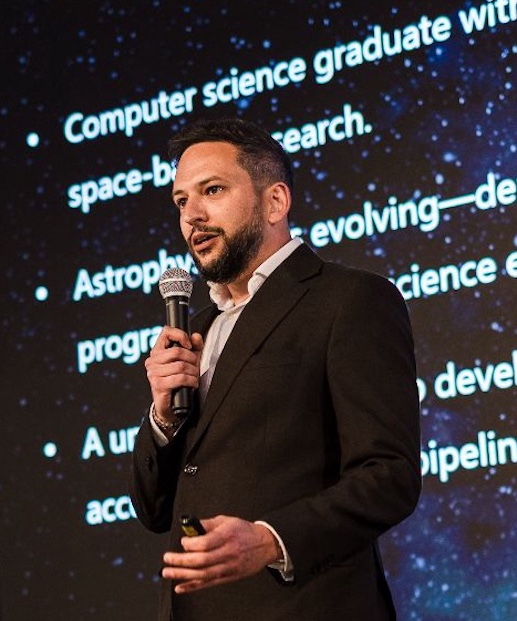
Dr Ian Fenech Conti
Software Engineer | AI & Astrophysics Researcher | Lecturer
Dr Ian Fenech Conti completed his undergraduate studies in Information Technology — specialising in Computer Science and Artificial Intelligence — at the University of Malta. He was subsequently invited to continue his work at the Department of Physics at the University of Oxford.
He pursued a Ph.D. in Computer Science and Physics through a joint collaboration between the University of Malta and the University of Oxford, with a research focus on optical modelling and simulation. His work involved the development of cutting-edge image processing and correction algorithms for space telescopes.
Following his doctoral studies, he joined the Institute of Space Sciences and Astronomy (ISSA) at the University of Malta as an Affiliate Lecturer , continuing to advance his research while expanding into new areas, including Artificial Intelligence and vision transformer models applied to radio astronomy. He also contributes to academic life through co-supervision of MSc and Ph.D. students and by delivering occasional guest lectures on specialised topics.
Dr Fenech Conti has since transitioned into industry while maintaining his academic affiliation. He currently serves as Director and Head of Research & Product Development at Loqus Business Intelligence ( LinkedIn ), where he leads the development of advanced software solutions for large-scale route planning and optimisation. His role spans both technical and strategic domains, overseeing R&D initiatives, shaping product direction, and delivering scalable, high-performance tools for major players in the logistics and retail sectors.

Research
My primary research area focuses on applying Computer Science and AI techniques to Astrophysics, specifically in the field of weak gravitational lensing.
I contributed to the Kilo-Degree Survey (KiDS) project as a member of a team that developed an innovative weak-lensing shear measurement pipeline. This pipeline incorporated a self-calibration technique designed to correct for noise and weight biases, successfully reducing shear biases to below 1%.
I have also contributed to the Euclid Space Telescope mission, where I designed a novel algorithm for modelling and measuring the telescope's point spread function (PSF). This enables accurate correction of PSF effects in weak-lensing analyses, thereby enhancing the reliability of observations related to dark matter and dark energy.
Additional details of my work can be found on my Google Scholar and arXiv pages.

Logistics
I currently work in the logistics industry, focusing on the software domain, where I lead the research and development team behind a sophisticated optimisation platform designed for large-scale operations. Our product empowers major enterprises to plan, schedule, and execute their routes and workloads with high efficiency, leveraging state-of-the-art optimisation tools tailored to real-world constraints.
At the core of our platform are advanced technologies and intelligent algorithms capable of managing millions of daily transactions. These systems ensure that jobs and routes are fulfilled in the most efficient and practical manner—striking a balance between performance, scalability, and operational reliability.
In addition to overseeing technical development, I play a key role in shaping the high-level strategy of the product—both from a technical and a business perspective. I work closely with stakeholders to define and evolve the product roadmap, ensuring that we continuously innovate, introduce valuable new features, and enhance existing functionality in response to user needs and industry trends.